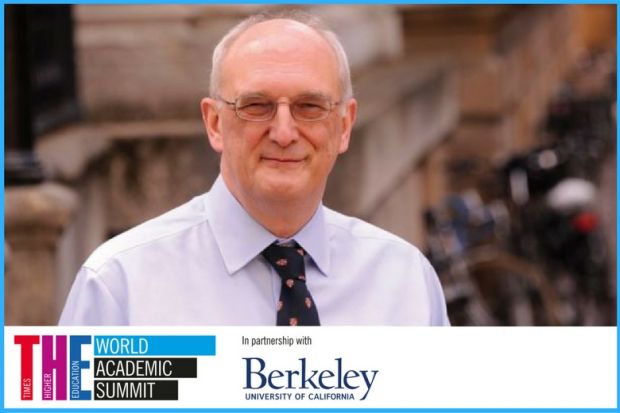Pre-register for a place at the THE World Academic Summit 2017 at King's College London
Leading universities must make a stronger case for their contribution to the public good in response to growing “anti-expert” rhetoric, according to the vice-chancellor of the University of Cambridge.
In a keynote address on the opening day of the Times Higher Education World Academic Summit, held at the University of California, Berkeley, Sir Leszek Borysiewicz was expected to say that institutions’ ability to conduct teaching and research depended on them retaining the trust of society at large.
Sir Leszek was due to warn that the feeling that universities did not share the public’s goals was “one of the biggest risks to [their] legitimacy”, expressing concern about claims made ahead of the UK’s referendum on European Union membership that “Britain has had enough of experts”.
“If that is really so – and it would be a mistake to underestimate the strength of feeling, or the sense of grievance felt by many – then we, universities, need to make a better case for our role as institutions that contribute to the public good,” Sir Leszek was set to say. “If society does not believe that we have its interests at heart, we need to do a better job at engaging with it and communicating the impact of our work.”
In his address, Sir Leszek was expected to argue that universities’ ability to fulfil their duties to society was also dependent on them retaining their institutional autonomy, calling for university leaders to “fiercely defend the right to carve out a space for intellectual enquiry that will not be obviously or immediately impactful”.
While there is no problem with universities being “properly monitored” by independent bodies, Sir Leszek was due to say that he would be “concerned by attempts to direct, or determine by committee, what and how universities should be doing”.
“If our institutional autonomy is eroded, so is public trust in what we do. Society, rightly, loses trust in institutions that are dictated to.”
He was also due to call for research-intensive universities to focus on international collaboration, arguing that the complexity of global challenges and the diminution of resources meant that “the lone researcher – even the lone institution – is no longer a viable model for the delivery of world-leading science”.
University leaders from around the world were gathering in Berkeley for the THE summit, which this year has the theme “world-class universities and the public good”. Topics being discussed included funding, academic freedom and the role of higher education institutions in tackling social inequality.
Register to continue
Why register?
- Registration is free and only takes a moment
- Once registered, you can read 3 articles a month
- Sign up for our newsletter
Subscribe
Or subscribe for unlimited access to:
- Unlimited access to news, views, insights & reviews
- Digital editions
- Digital access to THE’s university and college rankings analysis
Already registered or a current subscriber? Login








